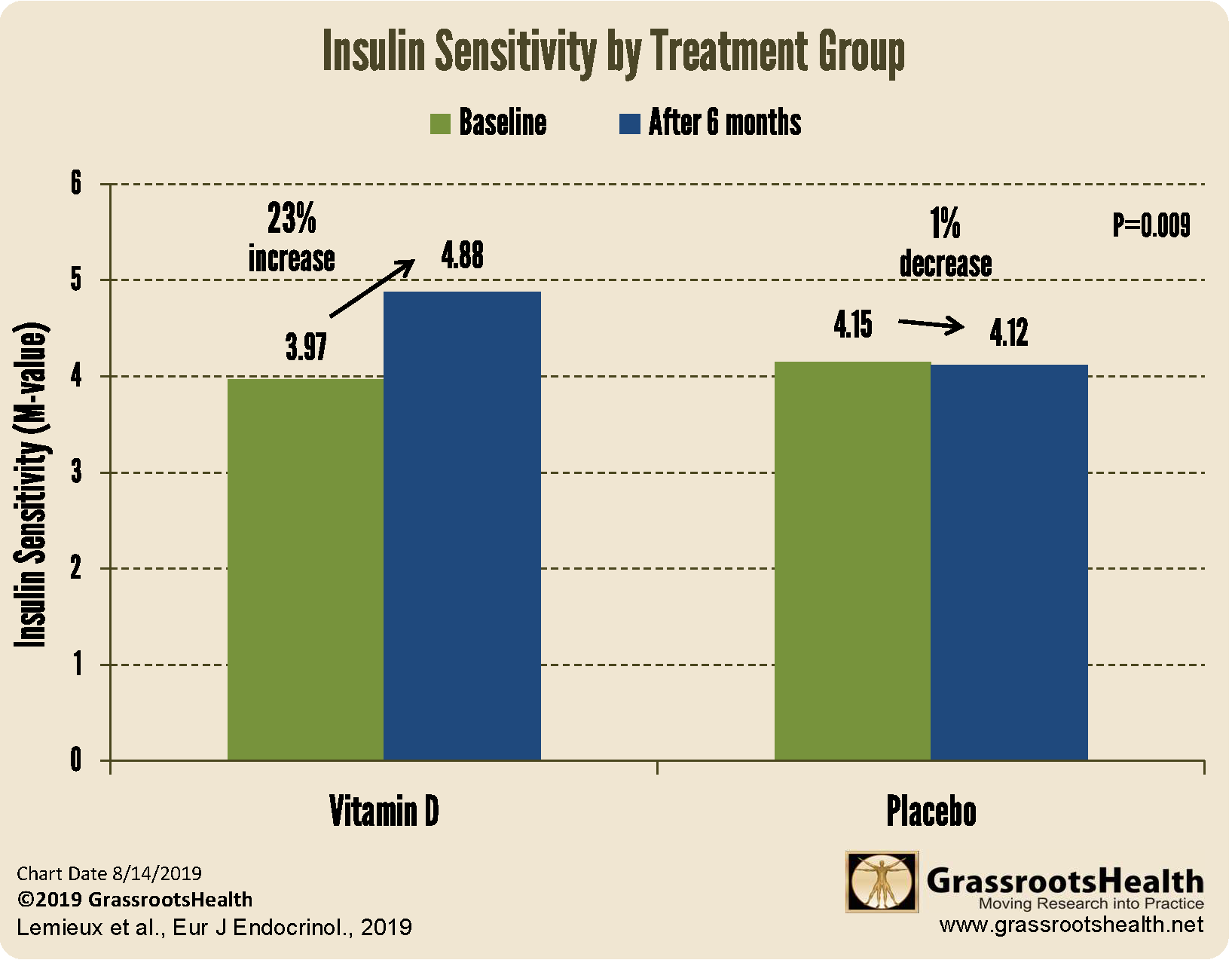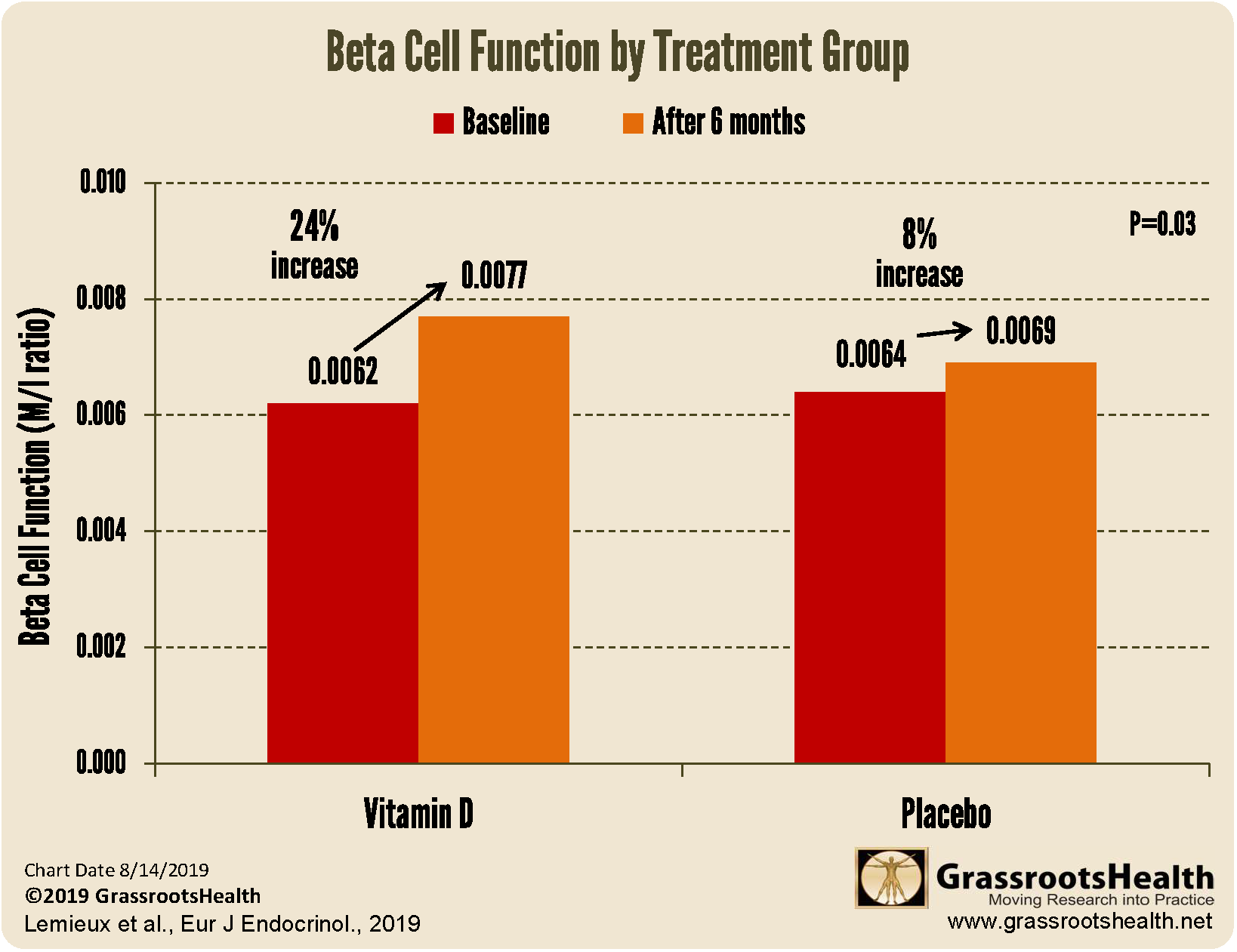Published on August 15, 2019
In the United States, diabetes affects more than 30 million people, with type 2 diabetes accounting for 90-95% of cases. Additionally, more than a third of US adults (84 million) have prediabetes.
 Last month (July 2019), results were published from a clinical trial assessing the effect of vitamin D supplementation on insulin sensitivity and beta cell function among individuals at high risk of diabetes or newly diagnosed with type 2 diabetes. Insulin sensitivity describes how sensitive the body is to the effects of insulin. Beta cells are the insulin-producing cells in the pancreas and beta cell function refers their ability to produce and secrete insulin. In this trial, 96 participants were assigned to either 5000 IU of vitamin D per day or placebo for 6 months.
Last month (July 2019), results were published from a clinical trial assessing the effect of vitamin D supplementation on insulin sensitivity and beta cell function among individuals at high risk of diabetes or newly diagnosed with type 2 diabetes. Insulin sensitivity describes how sensitive the body is to the effects of insulin. Beta cells are the insulin-producing cells in the pancreas and beta cell function refers their ability to produce and secrete insulin. In this trial, 96 participants were assigned to either 5000 IU of vitamin D per day or placebo for 6 months.
What were the findings of the study?
Baseline vitamin D levels averaged 20 ng/ml (51 nmol/L). After 6 months, those in the vitamin D group achieved an average vitamin D level of 51 ng/ml (128 nmol/L) whereas the average level in the placebo group remained at about 20 ng/ml.
The researchers found that those in the vitamin D group had significant increases in both insulin sensitivity (P=0.009) and beta cell function (P=0.03) compared to those in the placebo group.
These findings suggest that vitamin D supplementation (5000 IU/day) could slow the progression of type 2 diabetes by increasing insulin sensitivity and beta cell function.
Are you getting enough vitamin D?
Testing your vitamin D level regularly and taking daily steps to keep it at a target level of 40-60 ng/ml (100-150 nmol/L) is important for all stages of health. Find out your levels today! Log on to the shop (click the link below) to get your tests and see for yourself if your level can be improved.
Make sure you track your results before and after, about every 6 months!
How can I track my vitamin D intake and levels over time?
To help you track your supplement use and nutrient levels, GrassrootsHealth has created an online tracking system called myData-myAnswers. For each specific supplement, you can track what days you take it, how much, and many other details. This will help you know your true supplemental intake and what patterns of use work for you to reach and maintain optimum nutrient levels. Check it out today!








